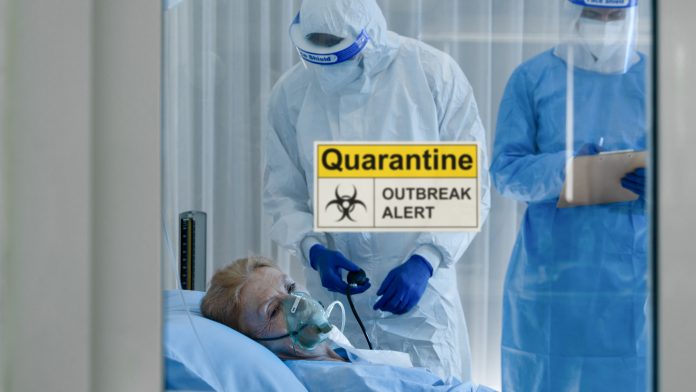Professor Martin Michaelis and Dr Mark Wass, School of Biosciences at University of Kent, explain the long and infamous history of human infection trials
‘The organisation 1 Day Sooner promotes the performance of human challenge trials to accelerate the development of a SARS-CoV-2 vaccine and to study the COVID-19 disease.
‘In such trials, volunteers would be vaccinated and then deliberately infected with SARS-CoV-2, the coronavirus that causes COVID-19. In conventional trials, vaccinated individuals are monitored for their response to natural infection.
Human infection trials have a long and controversial history, resulting in major breakthroughs but also producing examples of questionable and unethical practice. A famous example is the invention of a smallpox vaccine based on the related cow pox virus. Edward Jenner tested his hypothesis that mild cow pox infections protect from deadly smallpox disease on the eight year old James Phipps, the son of Jenner’s gardener. Although ethically questionable according to today’s standards, the resulting vaccine was one of the biggest successes in medical history and resulted in small pox’s eradication.
The history of human infection trials
Despite many scandals, international standards on human trials were only introduced in 1964 with the Declaration of Helsinki. A particularly dark chapter are human trials in Nazi Germany, resulting in at least 4,123 deaths. In many of these experiments, individuals were infected with pathogens, with some results published in international journals.
After the second World War, human trials were not regulated in the US, resulting in cases like that of John C. Cutler, a physician at the United States Public Health Service, who infected more than 1500 inmates, soldiers, and mentally disabled individuals with sexually transmitted pathogens, including syphilis. Henry K. Beecher’s 1966 report raised awareness on unethical medical experimentation, but not till 1974 did the US introduce the National Commission for the Protection of Human Subjects of Biomedical and Behavioral Research.
The crucial question for all human trials is whether the participants’ risk justifies the anticipated gain. Notably, infection experiments can at best speed up the process of clinical testing, but not replace conventional trials.
How risky is the process?
1 Day Sooner argues that the risks are low for volunteers based on data estimating mortality rates between 1 in 3,000 and 1 in 14,000 in 20 to 29 year olds. Other data suggest, however, that more than 20% of SARS-CoV-2-infected 20 to 44 year olds require hospitalisation. Many survivors, including young ones with mild cases, experience long-term problems such as organ damage, fatigue, and breathlessness. Importantly, there is no effective treatment for trial participants who fall critically ill.
More than 40% of COVID-19 patients in intensive care have been reported to die
More than 40% of COVID-19 patients in intensive care have been reported to die. The elephant in the room is “antibody-dependent enhancement”, a phenomenon in which antibodies derived from previous infections or vaccinations increase the severity of a disease instead of reducing it. This has been described in animal models for other coronaviruses. Currently, there is not sufficient data to rule out antibody-dependent enhancement after SARS-CoV-2 vaccination with certainty.
The benefit of human challenge trials?
It is difficult to predict what will actually be gained from human challenge trials. Technically, this sounds simple and straightforward, but it is not. Laboratory infections can be complicated and infection success may be low. You will either have to infect unvaccinated individuals to establish an effective infection protocol, with all its ethical implications, or you may not be able to discriminate the vaccine effect from an ineffective infection protocol. Without infecting unvaccinated individuals, it is difficult to discriminate between an effective vaccine and an ineffective infection protocol. Without an unvaccinated (placebo) control, you also cannot study the placebo effect that may impair study results.
A final concern is whether human challenge trials are actually necessary in the light of an ongoing pandemic with globally more than 200,000 new known cases each day, which should provide plenty of opportunity to observe natural infection.
In conclusion, human infection has a long and controversial history. There are many reasons why this is not commonly done anymore, in particular for potentially deadly diseases without available treatment. Hence, such trials must be considered with extreme care, not least because the results may be of limited use. There is an ongoing pandemic with about 200,000 new cases per day that should enable the performance of regular trials.
Professor Michaelis and Dr Wass run a joint computational/wet laboratory. In collaboration with Professor Jindrich Cinatl (Goethe-University, Frankfurt am Main), they manage and develop the Resistant Cancer Cell Line (RCCL) Collection, a unique collection of 2,000 cancer cell lines with acquired resistance to anti-cancer drugs.











